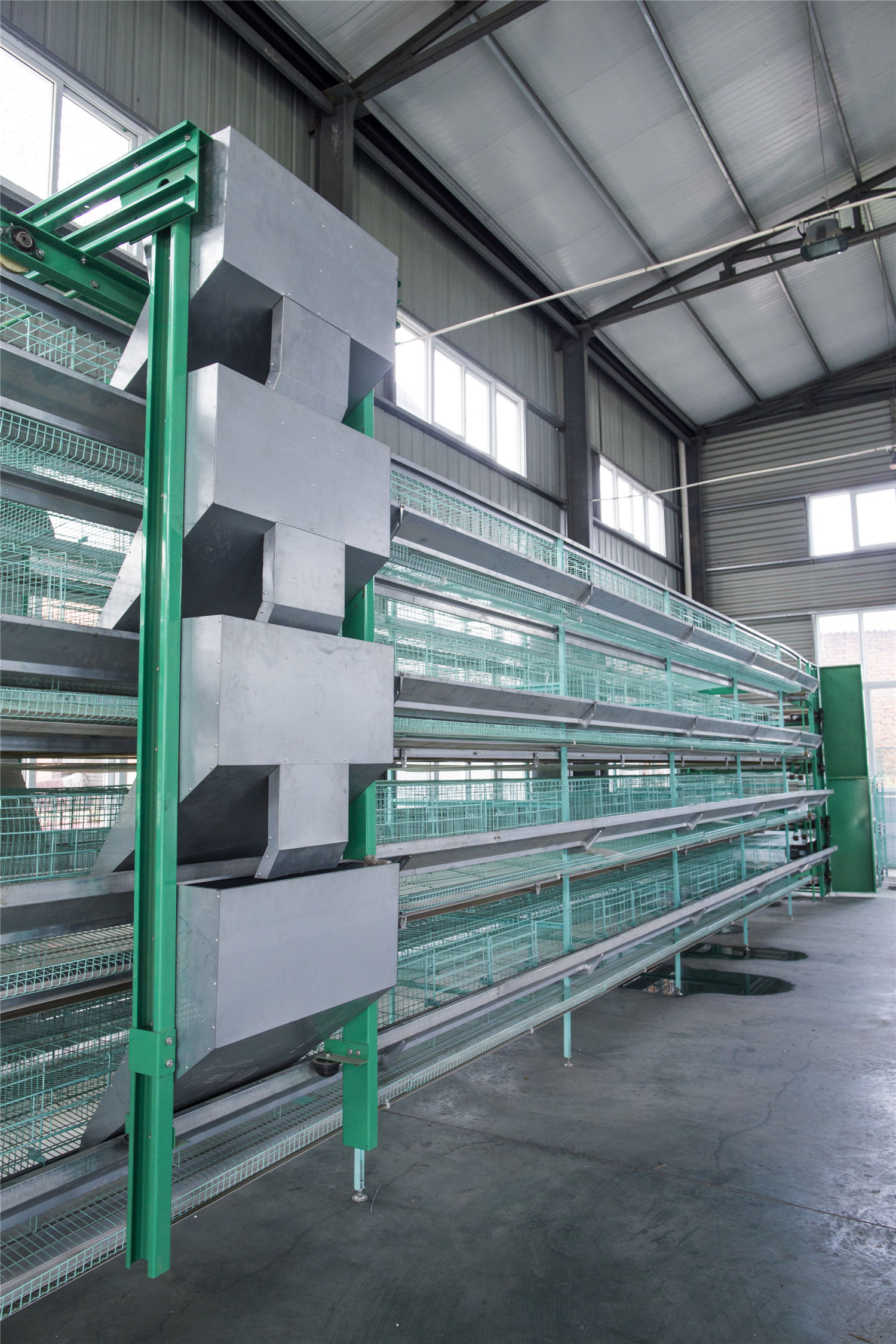The main points of using chicken equipment to prevent chicken diseases
- font size
- Be the first to comment!
The use of various types of chicken farming equipment to assist in raising chickens is the current breeding method for most large-scale chicken farms. When raising chickens with chicken equipment, labor intensity and labor costs are greatly reduced, and the environment of the chicken house can be better controlled, and the work of raising chickens is more efficient. Although chicken raising equipment is more efficient, the control of chicken disease prevention is still a key point that farmers cannot ignore. The author will introduce the main points of chicken disease prevention to farmers.
1. Feeding fresh feed: Many farmers will purchase a lot of feed for storage when they choose feed. In this way, if the storage is unreasonable, it is easy to cause the feed to mold and deteriorate, and the chickens will affect the health after eating. Therefore, when choosing feed, farmers should not purchase too much at a time. It is recommended to buy one week's amount. When storing, they should also be stored in a dry environment to avoid deterioration.
2. Dust removal: The chicken house will produce a lot of manure every day. If the farmer does not clean up in time, the ammonia in the chicken house will exceed the standard. Ammonia is a harmful gas that can seriously affect the health of the flock. The key is that conditional farmers can install a manure removal device to clean the manure, which saves time and effort, and has a good manure removal effect. It can clean the manure every day to avoid the generation of ammonia and clean the chicken house environment.

3. Control the temperature and ventilation: When ventilating and controlling the temperature of the chicken house, the farmer should follow the principle of "guarantee the temperature as much as possible under the premise of ensuring normal ventilation". In addition, there is humidity in the chicken house. It should be noted that there is a balance between temperature and humidity under high and low temperatures. When the temperature is high and the humidity is high, it is easy to form a sultry environment, which will have a significant adverse effect on the growth and health of the chicken.
4. Formulate reasonable disinfection procedures: because the chickens live in the house for a long time, feces, feed, dust, water and other contaminants will cause the house to breed a large number of pathogenic microorganisms, which will spread to the chickens and cause harm. The main method of killing these pathogenic microorganisms is disinfection, so formulating reasonable disinfection procedures is a key measure to reduce the occurrence of diseases. However, it is not enough to sterilize once. It is necessary for farmers to carry out regular disinfection, and to choose a good disinfection method and disinfection drugs.
5. Do a good job of immunization: Infectious diseases are a serious threat to the health of chickens. And once the chickens become ill, they may be transmitted to the flocks of the whole house, causing heavy losses. At present, the effective way to prevent infectious diseases is to immunize chickens. Therefore, in the process of raising chickens, farmers must do immunization work. According to the epidemic situation of the area and the actual situation of the chicken coop, formulate a reasonable immunization program and immunization method, which is also the key point of how to prevent disease in chickens.
6. Use of drugs to prevent diseases: Most infectious diseases are achieved by vaccine inoculation, while most bacterial diseases depend on the regular delivery of drugs to achieve prevention. Formulate different medication prevention procedures according to the conditions of different diseases.
The above six points are the main points that the author told the farmers to use chicken raising equipment in Uganda to prevent and control chicken diseases. I believe that as long as the farmers do the above six tasks, the prevalence of chickens will be greatly reduced or even avoided, thank you for your attention!


